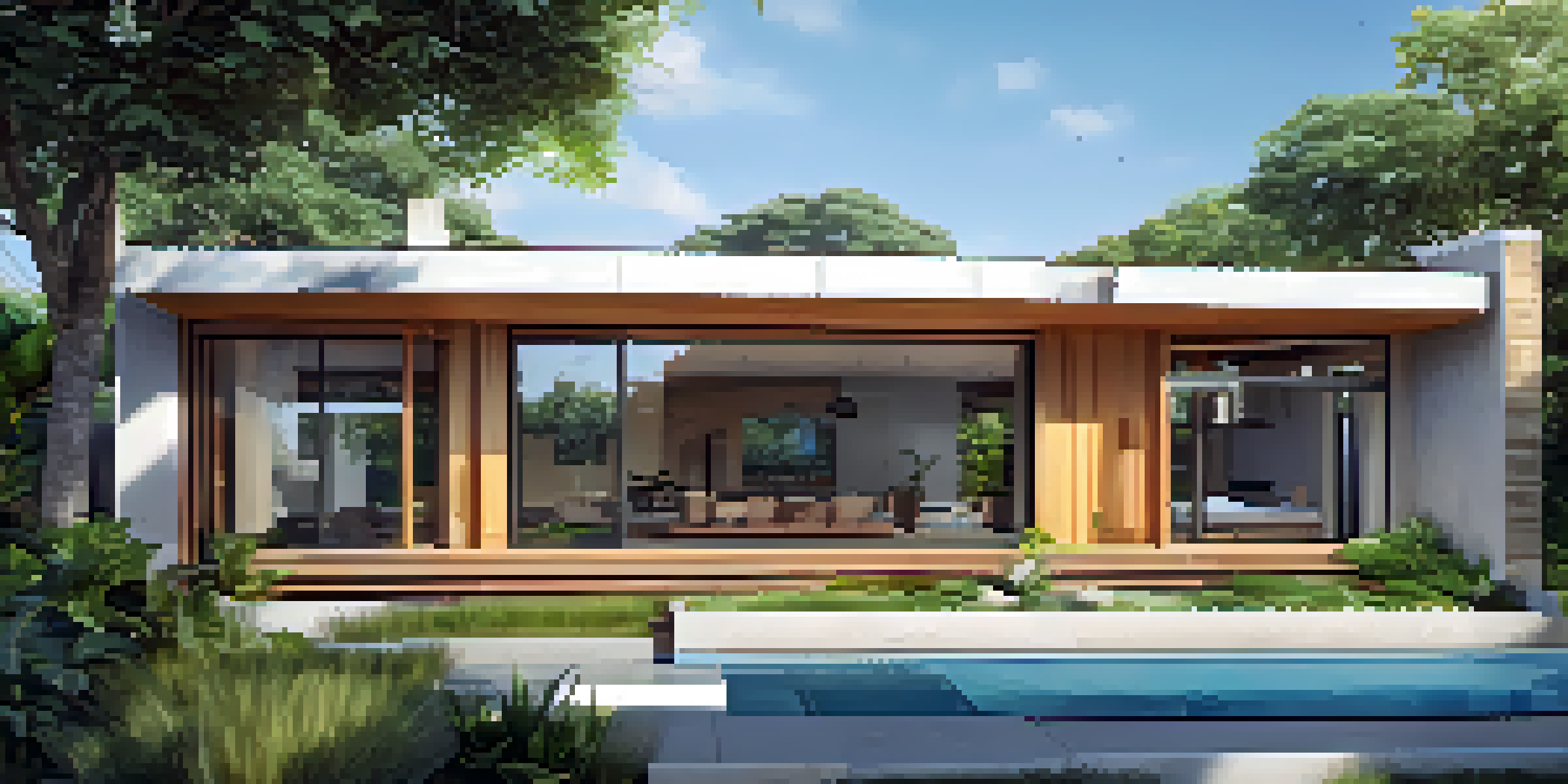How to Implement Energy-Efficient Features in New Builds

Understanding Energy Efficiency in Construction Projects
Energy efficiency refers to using less energy to provide the same service, which is crucial in modern construction. By integrating energy-efficient features, builders can significantly reduce long-term energy costs for homeowners and businesses alike. This approach not only benefits the environment by lowering carbon footprints but also enhances property value through sustainable practices.
Choosing the Right Building Materials for Efficiency
Selecting energy-efficient materials is a foundational step in construction. For example, using insulated concrete forms or energy-efficient windows can drastically improve a building's thermal performance. Additionally, sustainable materials like bamboo or recycled steel not only provide durability but also contribute to a lower environmental impact.
Energy Efficiency Reduces Costs
Integrating energy-efficient features in construction can significantly lower long-term energy costs for homeowners and businesses.
Incorporating Renewable Energy Solutions
Integrating renewable energy solutions such as solar panels or wind turbines can greatly enhance a building's energy efficiency. These systems can reduce reliance on fossil fuels and save homeowners money on energy bills. Moreover, incorporating battery storage systems allows for the efficient use of generated energy, making homes more self-sufficient.
Designing for Natural Light and Ventilation
Maximizing natural light and ventilation is an effective way to reduce energy consumption. Well-placed windows and skylights can decrease the need for artificial lighting during the day. Additionally, designing spaces to enhance airflow can lead to reduced reliance on air conditioning systems, promoting a comfortable indoor environment.
Smart Tech Enhances Energy Control
Utilizing smart home technology allows homeowners to optimize energy consumption, leading to substantial savings.
Utilizing Smart Home Technology
Smart home technology can play a pivotal role in energy efficiency in new builds. For instance, programmable thermostats and smart lighting systems allow homeowners to control their energy usage more effectively. By learning user preferences, these technologies can optimize energy consumption patterns, leading to significant savings.
Implementing High-Efficiency HVAC Systems
Heating, ventilation, and air conditioning (HVAC) systems are often the largest energy consumers in a building. Implementing high-efficiency models can lead to substantial energy savings. Additionally, regular maintenance and smart zoning can ensure these systems operate at peak performance, further enhancing efficiency.
Educating Homeowners Maximizes Benefits
Providing education on energy-efficient features empowers homeowners to make informed decisions that enhance energy savings.
Conducting Energy Audits for Continuous Improvement
Conducting energy audits during and after construction can help identify areas for improvement. These assessments provide insights into energy usage and highlight potential inefficiencies. By regularly revisiting energy consumption, builders can make informed adjustments to maintain optimal energy efficiency.
The Importance of Educating Homeowners
Educating homeowners about their new energy-efficient features is essential for maximizing benefits. Understanding how to use smart systems or when to open windows can significantly impact energy savings. By providing resources and guidance, builders empower homeowners to make informed decisions that align with energy-efficient practices.